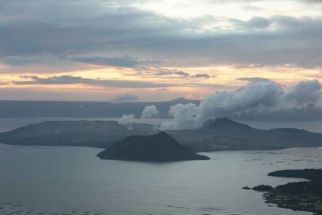18 pharma firms offer to cut prices

MANILA, Philippines — At least 18 multinational pharmaceutical companies operating in the Philippines have offered to reduce their medicine prices “substantially” to help the public cope with high health care costs, the Pharmaceutical and Healthcare Association of the Philippines (PHAP) said yesterday.
In a statement, PHAP executive director Teodoro Padilla noted that the companies are engaged in manufacturing “innovative and lifesaving medicines that undergo extensive research and development.”
“Aside from lowering medicine prices, we are now looking at ways to help patients through their whole medical journey from prevention to treatment to cure, if that is possible. We will announce these initiatives as soon as we work out the partnership details with the Department of Health (DOH),” Padilla said.
PHAP informed Health Secretary Francisco Duque III and some patient organizations about the offer during a meeting early this week.
The group gave assurance that its members are willing to reduce prices of medicines for major non-communicable diseases, infectious diseases and rare disorders.
“The DOH secretary is doing his best to look for ways to lower health care costs of Filipino patients. We support the DOH objective. We, in the private sector, are reaching out as a government partner so we may find the best solution to the current health care gaps and for patients and their families to fully benefit,” Padilla said.
Aside from straight price reduction on medicines, the PHAP members have offered medicine assistance programs (MAP) where “holistic and comprehensive assistance” will be made available to patients so that they can start and adhere to the entire treatment “from diagnosis, to treatment and to monitoring.”
Initially for cancer, the program may contain various medicine support for patients from free cancer medicines or discounts, support for laboratory testing and monitoring, patient education, online community support and capacity building for health care providers.
Under the proposed partnership, for example, patients with breast cancer may obtain up to 54 percent discount on a cancer drug or free medicines on certain treatment cycles.
Padilla has urged the public to “try to buy from government hospitals and pharmacies that have been found to have the lowest prices because they could pool their requirements and procure with volume.”
“Government hospitals, not price control, are the solution in helping the public reduce their medicine costs. The issue that needs to be addressed is how to make supplies last and how to make them more available through other outlets,” he said.
Padilla claimed that if government hospitals and pharmacies could offer more of these cheaper medicines to more people in more areas, the country would be able to somehow catch up with its neighbors in terms of health care participation.
At the moment, Padilla said Filipino patients pay about 54 percent of their own health care costs, while it is only 12 percent in Thailand, 38 percent in Malaysia and 37 percent in Indonesia.
The government’s share in medicine expenditure is 91 percent in Thailand, 54 percent in Malaysia and 14 percent in Indonesia.
The anti-diabetic drug metformin (500 mg) sells for only P0.56 to P19 in government hospitals, compared to P0.62 to P35 in private hospitals and from P1.50 to P16.15 in retail outlets, according to Padilla.
He also cited losartan (100 mg), which is for high blood pressure control, sells for P0.86 to P36 in government hospitals, P2.75 to P68 in private hospitals and P8 to P34.50 in retail outlets.
Padilla had earlier proposed that government hospital pricing be also reviewed to “narrow their wide gaps since their acquisition cost is the same as procurement is centralized.”
“That is the real solution, not price control which may be initially popular but ineffective and actually counterproductive as some countries have found out. Price control can price medicines at levels that are unsustainable,” he said.
- Latest
- Trending




























